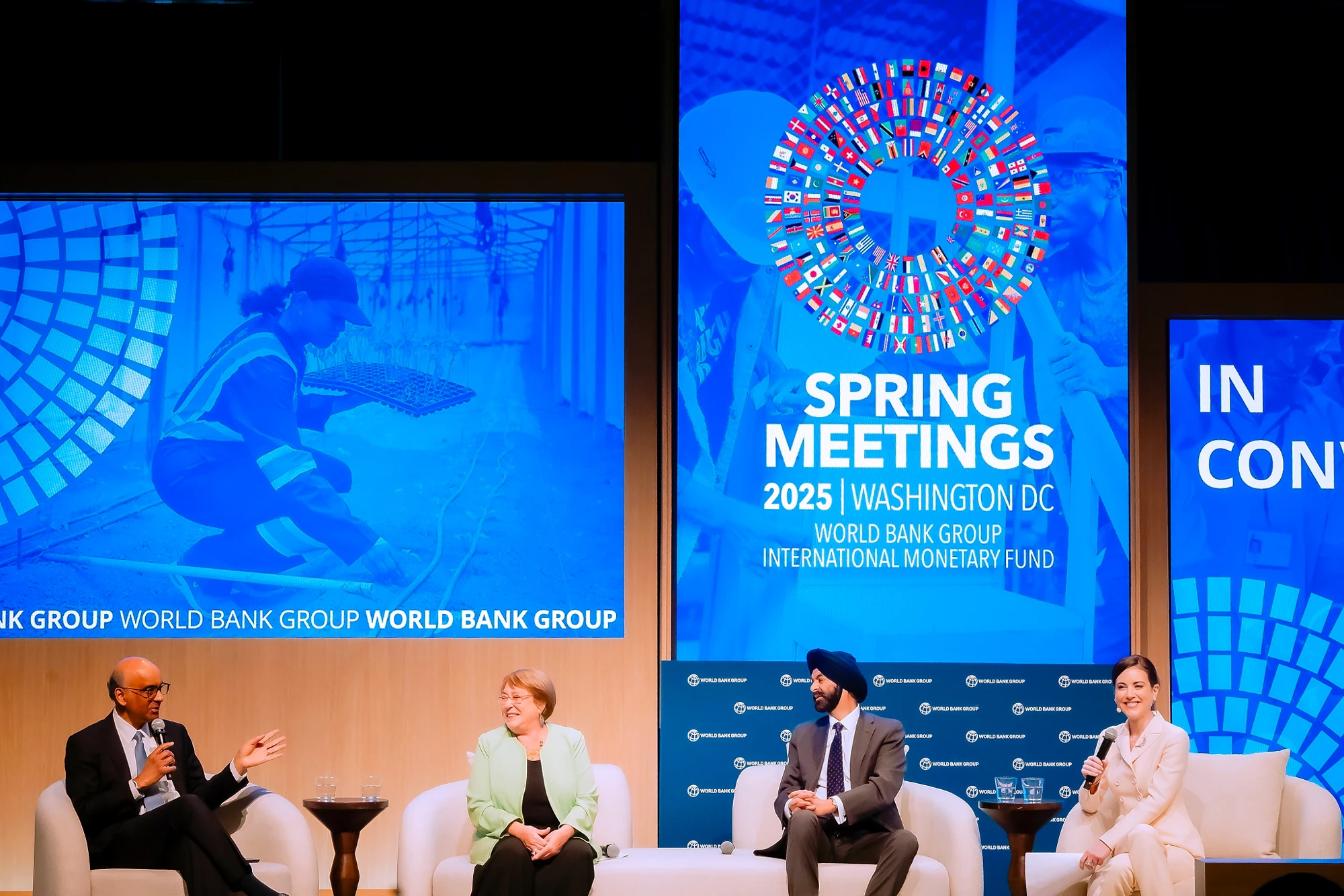Feminist Reflections on the WB and IMF 2025 Springs: A Failure to Read the Room
by MENAFem Movement for Economic, Development and Ecological Justice
The IMF–World Bank Spring Meetings 2025 ended with statements about resilience, innovation, and recovery. But for women in MENA, Africa and the Global South, the outcomes rang hollow.
We were told the global economy is “on track.” Yet in countries across our regions, that track leads to deeper debt, weaker public services, and greater inequality. The very economic system under debate in Washington, D.C., was built to serve creditors, not communities. It continues to leave women and frontline communities out of decision-making, while making them pay the highest price.
What Feminists Saw, Heard, and Can’t Accept
We watched powerful institutions celebrate “progress” while refusing to address the core of the crisis: the exploitative logic of a financial system rooted in colonial legacies and patriarchal values.
We heard IMF Managing Director Kristalina Georgieva say, “The world has been through a lot… but we see positive momentum.”
Yet in Sudan, Gaza, Syria, and Lebanon, women face war, displacement, and economic collapse. In Tunisia and Egypt, austerity tears apart public services. In Kenya, Ghana, and Zambia, women are paying the cost of debt servicing with unpaid care and exhausted bodies. The meetings failed to confront the debt crisis as a feminist crisis. They ignored the social toll of austerity on women’s health, livelihoods, and safety. They offered climate finance in the form of loans—adding to a debt burden that women already carry through invisible labor and frontline survival.
Where are Africa and MENA in Global Decision-Making?
Once again, our regions were spoken about, not spoken with. Despite African and Arab governments raising clear concerns—especially on surcharges, debt restructuring, and SDR reallocation—those voices were sidelined. Feminist civil society was barely visible in the formal spaces. Tokenism replaced participation.
Sub-Saharan Africa spends more on debt payments than on healthcare and education. IMF surcharges alone have drained over $1.3 billion from countries in distress since 2020. These policies deepen inequalities rather than solve them.
The MENA region faces some of the world’s highest youth unemployment and lowest female labor participation. IMF loans have demanded subsidy cuts, wage freezes, and public sector retrenchment—destroying any possibility of inclusive recovery.
We Demand Feminist Alternatives
We don’t want small tweaks. We demand a fundamental shift in how global finance is structured.
Here’s what that means:
- Cancel illegitimate debt and surcharges. End the extraction of resources from crisis-hit countries.
- Replace austerity with investment in care. Social protection, public healthcare, and education must be fully funded—not sacrificed.
- Ensure grants, not loans, in climate finance. Women on the frontlines of climate change should not carry the cost of a crisis they did not cause.
- Democratize decision-making. Give equal voice and voting power to the Global South at the IMF and World Bank.
- Fund local, women-led solutions. Redirect finance from corporations and consultants to grassroots climate and care initiatives.
As European and other donor countries speak of defending multilateralism, we call on them to match rhetoric with action. Real multilateralism cannot exist while the richest countries hold the majority of power in global financial institutions. Real reform must begin by dismantling the systemic inequalities embedded in Bretton Woods governance.
A Call from Feminists in Africa, MENA and the Global South
We are not passive recipients of aid or policy.
We are economists, organizers, caregivers, farmers, teachers, and climate defenders. We understand what our communities need. We see how global policies land on the ground—and we resist what harms us.
As the world heads toward the 2025 UN Financing for Development Conference, we will not accept symbolic commitments. We will push for a feminist, post-colonial transformation of the global financial architecture.
The time for bold action is now.


